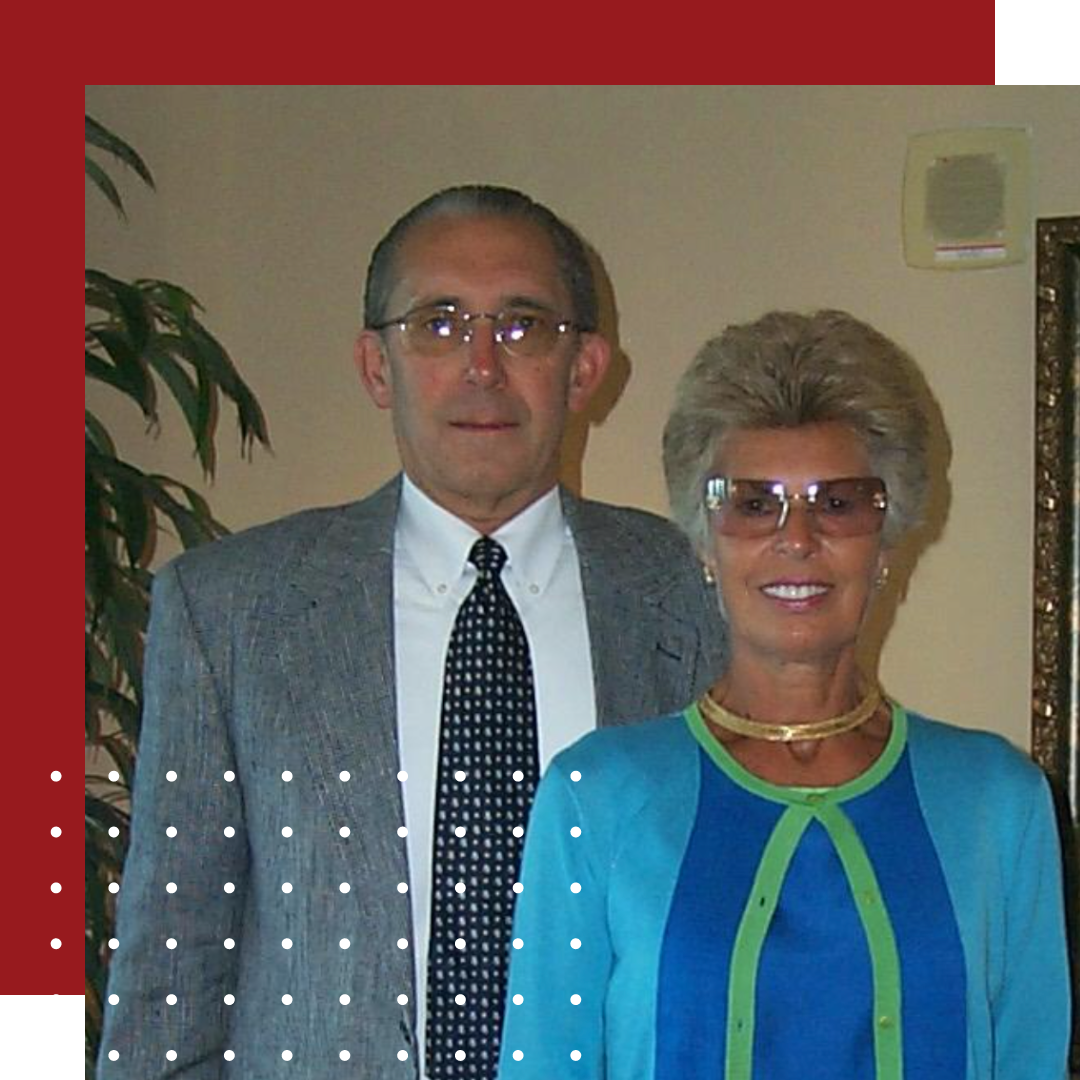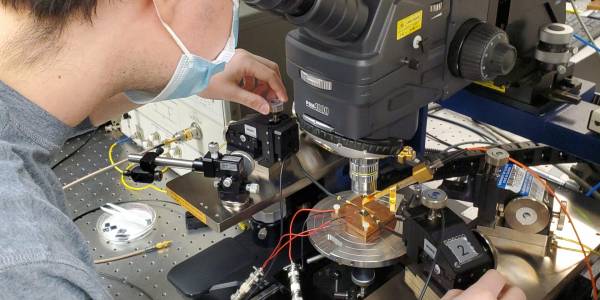Foundation Program History

Carl and Margot Johnson had a dream of encouraging and enabling students to enter the fields of science, engineering and mathematics thereby increasing and improving the pool of engineers and scientists seeking to tackle the tough and ever more complicated technical problems facing our nation and the world.
Dr. Carl Johnson and Richard W. Purnell met at Andora Restaurant in Sewickley, PA to bring this dream to life.
History Timeline
Coherent / II-VI Foundation News and Updates
A Mini-Conference Sponsored by The Coherent/II-VI Foundation Hosted Virtually by The University of Michigan May 10, 2024 8:45 am Welcome and Introduction: Rick Purnell, Executive Director Coherent / II-VI Foundation 8:50 am Opening Remarks: Rear Admiral Marc Pelaez, US Navy Retired, Chairman Coherent / II-VI Foundation Additive Manufacturing Session (Moderated by Alan Hedges) 9:00...
Read more
You are invited to attend our May 10, 2024 virtual mini-conference titled, “Engineering Nano-Scale Structures for Advanced Battery, Electronic and Optical Applications.” Visit the Mini-Conference section on our Block-Gift page for further information.
Read moreCoherent / II-VI Foundation Board of Directors & Staff
MARC PELAEZ
Chairman of the Board
Marc Y. E. Pelaez is a Rear Admiral, United States Navy (retired). Rear Admiral Pelaez is currently a private consultant to defense and commercial companies. He was Vice President of Engineering, and later Vice President of Business and Technology Development, for Newport News Shipbuilding, from 1996 until 2001, when it was acquired by Northrop Grumman Corporation. From 1993 to 1996, Rear Admiral Pelaez served as Chief of Naval Research. He served as the Executive Assistant to the Assistant Secretary of the Navy (Research, Development, and Acquisition) from 1990 to 1993. From 1968 to 1990, he held numerous positions, including command assignments, in the United States Navy. He is a graduate of the United States Naval Academy. Rear Admiral Pelaez has a broad background and understanding of technology and technology development, a seasoned knowledge of military procurement practices, and management leadership and consulting skills developed throughout his military and civilian careers.
CARL J. JOHNSON
Chairman Emeritus of the Board
Co-founder of II-VI Incorporated (publicly traded NASDAQ IIVI symbol)
Retired Chairman, CEO and President of II-VI Incorporated
Current Chairman of the II-VI Foundation
Founder of SemiQ in Lake Forest, CA
Founder Clas-SiC Wafer Fab Limited in Kirkcaldy, Scotland
HOLLY MCCANN
Board Secretary
Holly McCann, Esquire, is a founding member of Block & Associates, LLC, a law firm located in the East End neighborhood of Pittsburgh. Holly is a seasoned corporate and tax lawyer, with 20+ years’ experience focused on assisting businesses in general corporate and partnership matters, including formation and dissolution issues, evaluation of tax matters, regulation of non-profit corporations, unrelated business taxable income, reorganizations and dissolutions of non-profit corporations, along with tax structuring. Holly is a graduate of Edinboro University of Pennsylvania with a B.S. in Accounting, and a graduate of Duquesne University School of Law. Holly is the President of the Pittsburgh Tax Club (2019-2022) and is the former Treasurer of the Pittsburgh Tax Club (2016-2019).
ELGIN EISSLER
Elgin received his BSEE from Carnegie Mellon University in 1974. Upon graduation, for the next 10 years, he worked at Instrumentation Industries, Inc., a privately held company specializing in respiratory therapy devices, where he served as Vice President. In 1984, he joined II-VI Incorporated, a worldwide manufacturer of high technology materials, solid state lasers and telecommunications devices. During his 38-year tenure at II-VI, Elgin has held a variety of positions including Vice President, Worldwide Materials, Chief Scientist, Laser Solutions, Executive Director of II-VI Beijing Technologies and Chief Technologist, Battery and Materials. Elgin served on the Board of Directors of 5N Plus, a Montreal based company specializing in high purity metals, from 2001 to 2006.
J.D. BROOKHART
JD Brookhart, a managing director at CJ&M Holdings, holds a finance degree from Colorado State University. He began his career as an award-winning sales executive at Xerox and was recruited to advance his career in medical equipment sales and then engineering software sales. He made a life-changing decision and spent the next 18 years coaching football in the NFL and at the highest collegiate level. He was a coordinator and head coach at a number of prestigious schools. He now directs CJ&M Holdings and their pursuit of supporting start-up companies. He also serves as a Board member for several for-profit and non-profit entities. He lives in Denver, with his wife and 4 sons.
YOUNG-KAI (Y.K.) CHEN
Dr. Young-Kai (Y.K.) Chen is the Deputy Chief Technology Officer at Coherent Corporation. He joined Coherent in 2017, responsible for developing advanced semiconductor electronics, optoelectronics, and sensors for next generation products. He also serves as part-time visiting professor at Princeton University and Cornell University. From 2017 to 2021, he was a Program Manager at DARPA initiating and managing programs in advanced semiconductor electronics, AI/Machine Learning processing and secured communications. Before DARPA, he was a Senior Director at Nokia Bell Labs from 1988 to 2017 supporting advanced research and development in the areas of high-speed electronics and optoelectronics. From 1980 to 1988, he was a design engineer on mixed-mode and microwave integrated circuits for phase arrays at Electronics Laboratory, General Electric Co.
Dr. Chen received his Ph.D. degree in Electrical Engineering from Cornell University, MSEE on planar phase array from Syracuse University, and BSEE from National Chiao-Tung University in Taiwan. He is a fellow of Bell Labs, IEEE and Optica (OSA), a member of National Academy of Engineering, and recipient of IEEE David Sarnoff Award and Edison Patent Award.
